Pour permettre une couverture complète de toutes les dimensions – à la fois théoriques et pratiques – de la question de l’accès à la justice, les coordinnateurs thématiques retracent et analysent les tendances nouvelles et émergentes du mouvement d’accès à la justice.
Inspirées de la «métaphore de la vague» du “Florence Access to Justice Project”, les lignes thématiques remontent aux trois vagues de Cappelletti et vont plus loin, pour analyser les développements ultérieurs et les plus récents.
Coordinateurs Mondiaux Thématiques
La «première vague»: coûts de la résolution des litiges au sein de l'appareil judiciaire formel et des services d'assistance juridique aux personnes les plus pauvres et les plus vulnérables
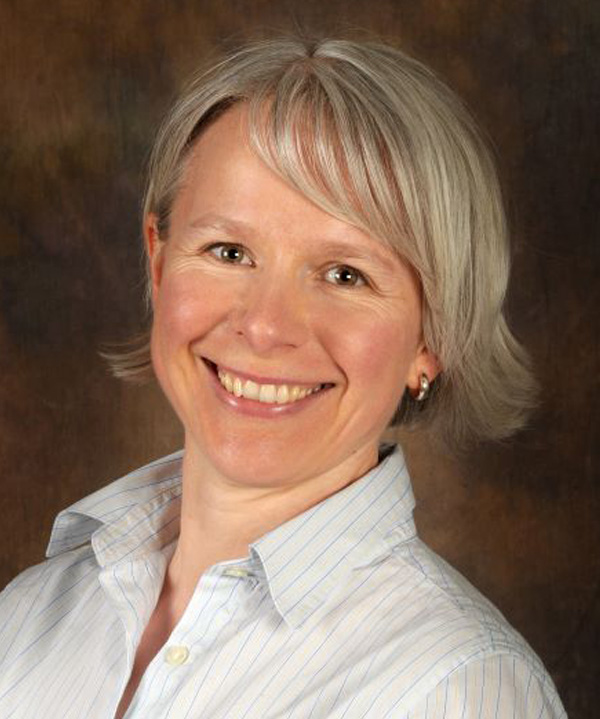
Anna Barlow is a post-doctoral researcher at Åbo Akademi University in Finland. Her recently completed thesis is a comparative study of legal aid in the Nordic countries, the UK and Ireland from a comparative administrative law perspective. Anna previously worked for 20 years as a legal aid lawyer in London. She was co-founder and CEO of the not-for-profit solicitors’ firm Law For All, which developed innovative delivery methods to enable more clients to be helped under available legal aid funding. Anna worked as a solicitor within the organisation and also led and managed the legal team, which grew to 50 lawyers at its height. In 2009 she moved to Finland with her family and turned towards academic work, completing a Masters degree in international human rights law before commencing her doctorate. Teaching law at an undergraduate level, training future legal aid solicitors and working for an NGO in Brussels have also formed part of Anna’s career. She has published on legal aid in the Nordic countries, the UK and Ireland.

Alan Paterson is a Professor of Law and Director of the Centre for Professional Legal Studies at Strathclyde University Law School, Scotland. He is the Chair of the International Legal Aid Group (ILAG) being the co-organizer for the thirteen conferences of the Group in The Hague (1995), Edinburgh (1997), Vancouver (1999), Melbourne (2001), Harvard (2003), Killarney (2005), Antwerp (2007), Wellington (2009), Helsinki (2011), The Hague (2013), Edinburgh (2015), South Africa (2017) and Ottawa (2019). He is also the Chair of the Legal Aid and Legal Services Group of the International Working Group on Comparative Legal Professions; the Chair of the Legal Services Group of Citizens Advice Scotland; Adviser to the Scottish Legal Aid Board and the Law Society of Scotland and responsible for the training and monitoring aspects of quality assurance of the peer review programme for civil, children and criminal legal aid lawyers in Scotland; International and Expert Adviser to the Scottish Government’s Independent Review of Legal Aid (2017). Educated at Edinburg and Oxford Universities and qualified as a solicitor in Scotland, he has published widely in the field of legal aid and legal services, including: “Resourcing Civil Justice”, co-authored with T. Goriely (1996); “The Transformation of Legal Aid”, co-authored with F. Regan, T. Goriely and D. Fleming (1999); “Paths to Justice Scotland”, co-authored with H. Genn (2001); “Contesting Professionalism: Legal Aid and Lon-lawyers in England and Wales”, co-authored with R. Moorhead and A. Sherr (2003); “Peer Review and Quality Assurance” (2007); “Lawyers and the Public Good” (2012); “Country Report of consultancy Study on the Feasibility and Desirability of establishing an Independent Legal Authority for the Legal Aid Services Concil, Hong Kong” (2012); and “Face to Face Legal Services and their Alternatives”, co-authored with Roger Smith (2013). Awarded OBE for services to Legal Education and the Law (2010).
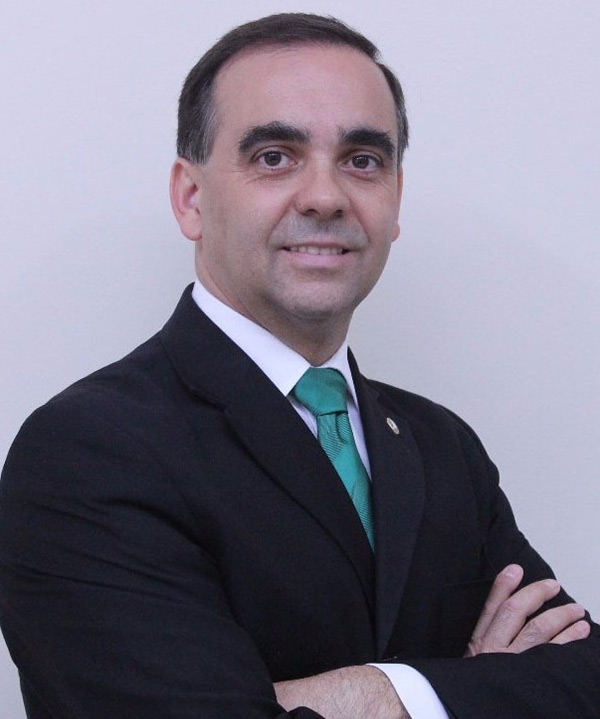
Cleber Francisco Alves is a Professor at Fluminense Federal University (Brazil) and a researcher at its PhD and Master’s Program in Sociology and Law (PPGSD/UFF). He served as Dean of the Law Faculty at the Universidade Católica de Petrópolis (1999-2002). He received his PhD in Law (2005) from Pontificia Universidade Católica do Rio de Janeiro: the doctoral thesis is a comparative study about legal aid in the United States, in France and in Brazil. He was a Visiting Fellow at the University of Baltimore, USA (2003), at the Université de Montpellier, France (2004), and at the Institute of Advanced Legal Studies of the University of London (2014-2015). He is also a Public Defender (since 1994) with the Rio de Janeiro’s State Public Defenders and works representing poor litigants in a Civil Court in his hometown, Petrópolis (Brazil). He has published many books and articles in the field of legal aid, including: “Justiça para todos! Assistencia Jurídica Gratuita nos Estados Unidos, na França e no Brasil” (2006); “Defensoria Pública no século XXI: Novos Horizontes e Desafios”, co-authored with P. Gonzalez (2017); “Access to Justice in Brazil – The Brazilian Legal Aid Model”, co-authored with A. Castro, D. Esteves and F. Silva (2017); and ブラジルにおける司法アクセス・ブラジルの法律扶助モデル,co-authored with T. Ikenaga and D. Esteves (Jiyu to Seigi – 2017).
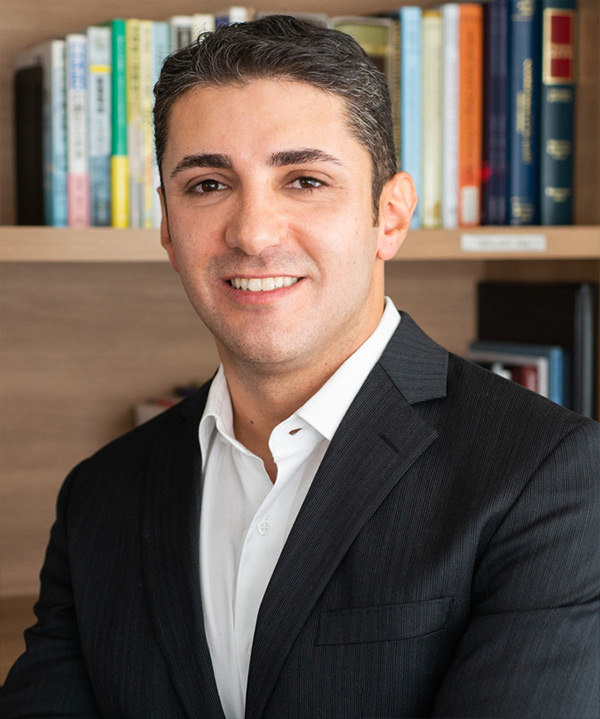
Diogo Esteves is Master in Law and Sociology and doctoral researcher at the Fluminense Federal University’s Program of Sociology and Law (Programa de Pós-Graduação em Sociologia e Direito da Univeridade Federal Fluminense – PPGSD/UFF), where he conduct comparative studies on access to justice and legal aid. He is Professor at Foundation Superior School of Public Defender’s Office of Rio de Janeiro (Fundação Escola Superior da Defensoria Pública do Estado do Rio de Janeiro – FESUDEPERJ), where he teaches brazilian legal aid since 2012. He is also a Public Defender of the State of Rio de Janeiro, Brazil (since 2008) and works representing vulnerable people in civil and criminal cases. His research resulted in several books and articles on the subject of access to justice and legal aid, including: “Access to Justice in Brazil – The Brazilian Legal Aid Model”, co-authored with A. Castro, C. Alves and F. Silva (2017); “Princípios Institucionais da Defensoria Pública”, co-authored with F. Silva (2018); and ブラジルにおける司法アクセス・ブラジルの法律扶助モデル co-authored with T. Ikenaga and C. Alves (Jiyu to Seigi – 2017).
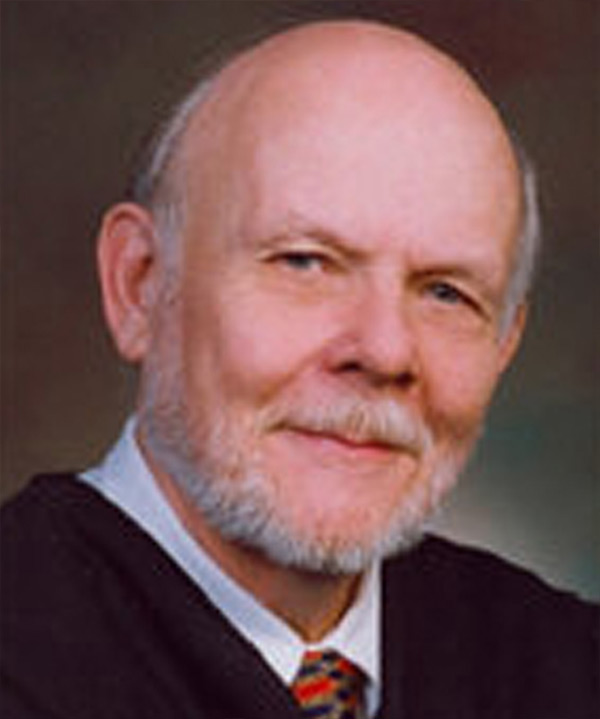
Earl Johnson Jr. served as Justice on the California Court of Appeal for a quarter century, retiring in 2007 for the express purpose of researching and writing a history of civil legal aid in the United States, a three-volume under the title “To Establish Justice for All: The Past and Future of Civil Legal Aid in the United States” (2014). Johnson earned his B.A. with Honors in Economics from Northwestern University, his J.D. from University of Chicago Law School where he was book review editor of the University of Chicago Law Review, and his LL.M. in Criminal Law from Northwestern University School of Law. Johnson started his legal career as a federal prosecutor in the Organized Crime and Racketeering Section, bust shifted to the legal service field when he became Deputy Director of Washington’s Neighborhood Legal Services Project (now Program) in 1964. He served has the Director of the War on Poverty’s OEO Legal Services Program from 1966-68, then as a Professor of Law at the University of Southern California where he also directed the Program on Dispute Resolution Policy at USC’s Social Science Research Institute and was a visiting scholar at the University of Florence’s Comparative Law Center where he worked with Mauro Cappelletti on the Florence Access-to-Justice Project. He co-drafted the first version of the Legal Services Corporation legislation which, after many changes and the hard work of others, eventually passed as the Legal Services Corporation Act in 1974. Johnson’s research resulted in several books and a dozen articles on the subject of legal aid and access to justice, including authoring “Justice and Reform: The Formative Years of the OEO Service Program” (1974) and co-authoring “Toward Equal Justice: A Comparative Study of Legal Aid in Modern Societies” (1975). After his appointment to the bench in 1982, Johnson published several more articles on legal aid and chaired the state bar’s “Access to Justice Working Group” which led to creation of the California Commission on Access to Justice in 1997. Founding chair of National Equal Justice Library at Georgetown Law School which collects and preserve the history of legal aid in criminal and civil cases. Former chair and board member of the California Access to Justice Commission. Member, steering committee of the National Coalition for a Civil Right to Counsel.
La «deuxième vague»: initiatives contemporaines pour assurer la représentation des droits diffus / collectifs
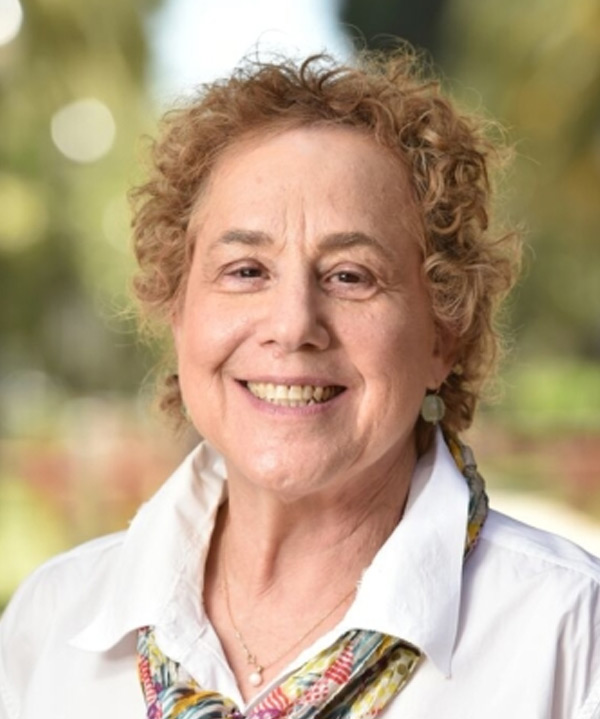
Deborah R. Hensler received her PhD from Massachusetts Institute of Technology (1973). Her empirical research on dispute resolution, complex litigation, class actions and mass claims has won international recognition. A political scientist and public policy analyst who was the director of the RAND’s Institute for Civil Justice before joining the Stanford Law School faculty, she has testified before state and federal legislatures in the United States on issues ranging from alternative dispute resolution to asbestos litigation and mass torts and consulted with judges and lawyers within and outside of the United States on the design of class action regimes. Professor Hensler is the organizer of the Stanford Globalization of Class Actions Exchange, which is spearheading international collaborative research on class actions and group litigation procedures by scholars in Asia, Europe, Latin and North America, and the Middle East. Noted for her decades-long scholarship on asbestos litigation and class actions in the United States, her research and publications have described and interpreted the trajectory of mass claims world-wide. She is the lead author of “Class Action Dilemmas: Pursuing Public Goals For Private Gain” (RAND, 2000), co-editor of “The Globalization of Class Actions” (Sage, 2009) and co-editor and lead author of “Class Actions in Context: How Culture Economics and Politics Shape Collective Litigation” (Elgar, 2016). At Stanford Prof. Hensler teaches seminars on complex litigation, transnational litigation, the legal profession, and research design for empirical legal studies and serves as associate dean of graduate studies. With Dean Emeritus Paul Brest, she co-founded the law school’s Policy Laboratory, and helped shepherd it in its early years. She has taught graduate level courses at Universidade Catolica de Lisboa, Hong Kong University, the University of Melbourne (Australia), Paris Dauphine University and guest lectured at Tilburg University (Netherlands), Katholieke Universiteit Leuven (Belgium), Nagoya University (Japan), and Universidad Torcuato di Tella (Buenos Aires). Professor Hensler is a fellow of the American Academy of Arts and Sciences and the American Academy of Political and Social Science and was awarded a personal chair in empirical studies of mass claims resolution by Tilburg University (Netherlands). In 2014 she was awarded an honorary doctorate in law by Leuphana University (Germany). She serves on the RAND Institute for Civil Justice Board of Overseers and on the advisory board of the Civil Justice Research Institute, a joint project of the University of California, Irvine and the University of California Berkeley Law School. In 2018 she served on the Academic Expert Panel for the Litigation Funding Inquiry of the Australian Law Reform Commission.
La «troisième vague»: les initiatives visant à améliorer la procédure et les institutions qui composent le mécanisme de traitement des litiges
Règlement extrajudiciaire des litiges
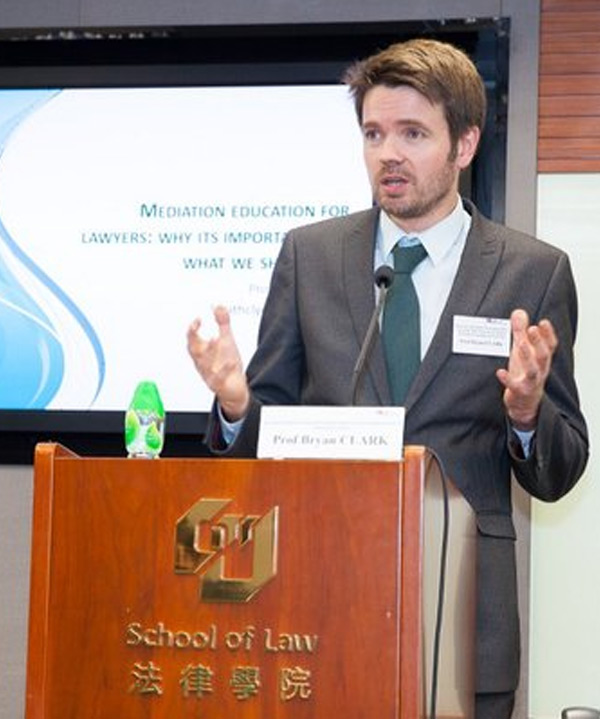
Bryan Clark (BA, LLM, PhD) is a Professor in the Law School at the University of Strathclyde and former Head of Department where he teaches ADR and civil justice at all levels. He is a mediation scholar and commercial lawyer with research interests lying primarily in the area of mediation and its interaction with the formal civil justice system and the workings of lawyers and judges. Author of Lawyers and Mediation (Springer 2012), he has published widely in his field and is a regular contributor to national and international academic and professional conferences. Amongst significant links to the profession, he is Chair of the Validation and Accreditation Panel for Relationships Scotland, academic committee member of the Civil Mediation Council, board member of the Arab Mediation Centre and former board member of Scottish Mediation. He is taking up a Chair at Newcastle University Law School (UK) in April 2019.
Procédure Civile
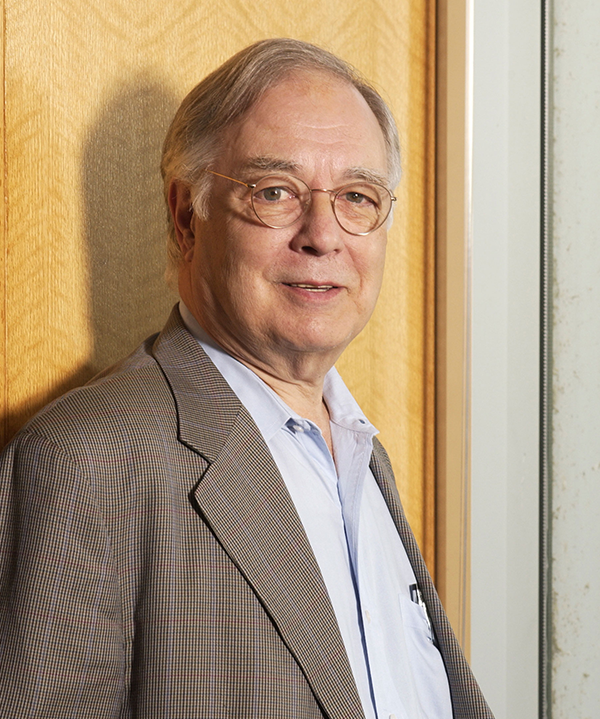
Marc Galanter (M.A., J.D., University of Chicago) is Professor of Law Emeritus of the University of Wisconsin-Madison. He was a Fulbright Scholar at the University of Delhi, a Fellow of the American Institute of Indian Studies and consultant on legal services to the Ford Foundation in India. He has lectured at more than eighty universities in the United States and abroad. He has taught South Asian Law, Law and Social Science, Legal Profession, Religion and the Law, Contracts, Dispute Processing and Negotiations. He has authored numerous books and articles related to law, the legal profession and the provision of legal services in India.
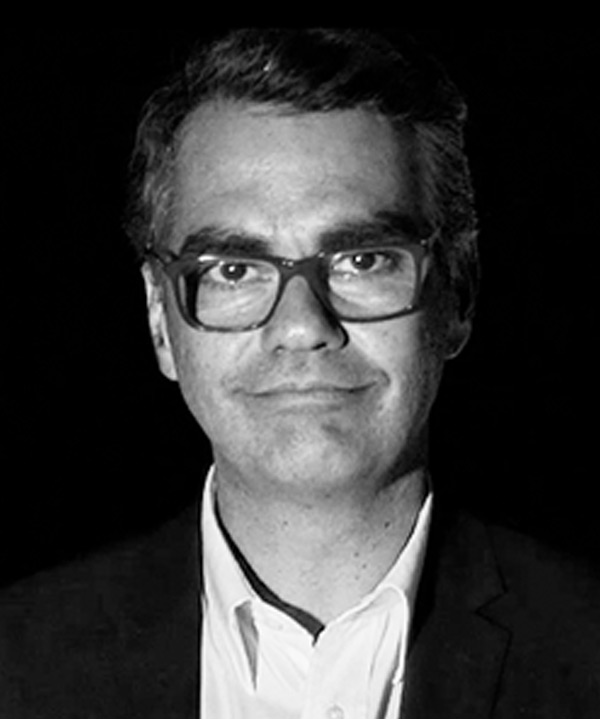
José Aurélio de Araújo received his PhD in Procedural Law from the State University of Rio de Janeiro (Universidade do Estado do Rio de Janeiro – UERJ, Brazil). He is a Public Defender of the State of Rio de Janeiro, Brazil and works representing vulnerable people in civil and administrative cases. He is also Professor of Civil Procedure and has published many articles in the field of legal aid and Civil Procedure, and the book “Cognição Sumária, Cognição Exaustiva e Coisa Julgada” (2017).
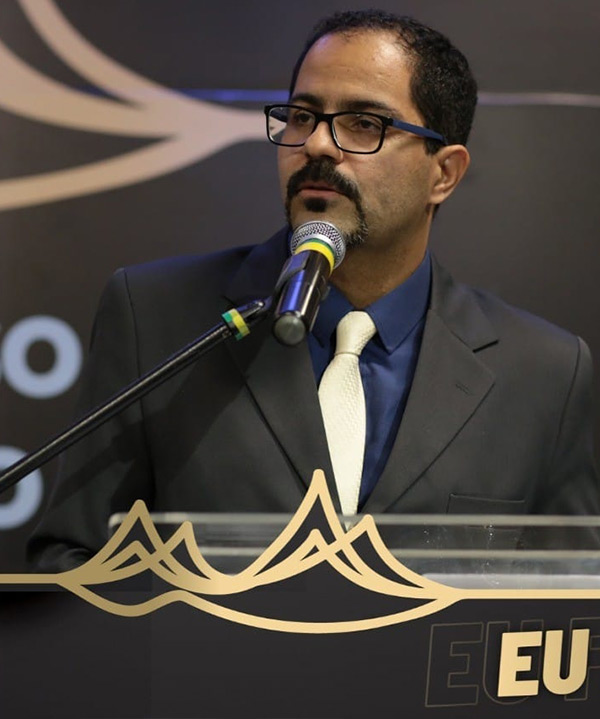
Fernando Gama de Miranda Netto holds a PHD in law from Gama Filho University (2007) with a one year period of research at Speyer University (Germany) and at Max-Planck-Institut (Heidelberg) with CAPES/DAAD scholarship. He has been Professor of Civil Procedure at the Law School of the Federal Fluminense University (UFF), Rio de Janeiro, campus Niterói, since 2009) and member of the Postgraduate Program in Sociology and Law (PPGSD-UFF, since 2011), and of the Program in Rights, Institutions and Business (PPGDIN-UFF, since 2017). Member of the Brazilian Association of Procedural Law (ABDPRO). Regional Director of the Pan-American Institute of Procedural Law (IPDP-Brasil).
Procedure Pénale
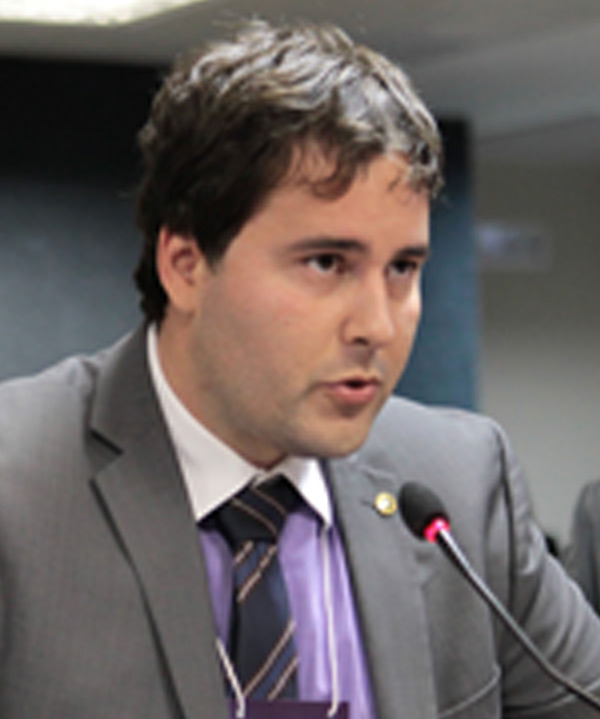
Franklyn Roger Alves Silva received his PhD in Procedural Law from the State University of Rio de Janeiro (Universidade do Estado do Rio de Janeiro – UERJ, Brazil) in cooperation with University of Pavia (Italy). He is Professor at Foundation Superior School of Public Defender’s Office of Rio de Janeiro (Fundação Escola Superior da Defensoria Pública do Estado do Rio de Janeiro – FESUDEPERJ), where he teaches brazilian legal aid since 2012. He is also a Public Defender of the State of Rio de Janeiro, Brazil (since 2008) and works representing vulnerable people in civil and criminal cases. His research resulted in several books and articles on the subject of access to justice, legal aid, criminal and civil procedure, including: “Access to Justice in Brazil – The Brazilian Legal Aid Model”, co-authored with A. Castro, C. Alves and D. Esteves (2017); “Princípios Institucionais da Defensoria Pública”, co-authored with D. Esteves (2018); “O CPC/2015 e a Perspectiva da Defensoria Pública”, coordinator (2019); and “Manual de Processo e Prática Penal”, co-authored with L. Silva (2017).
Simplification juridique et raccourcis dans la procédure judiciaire
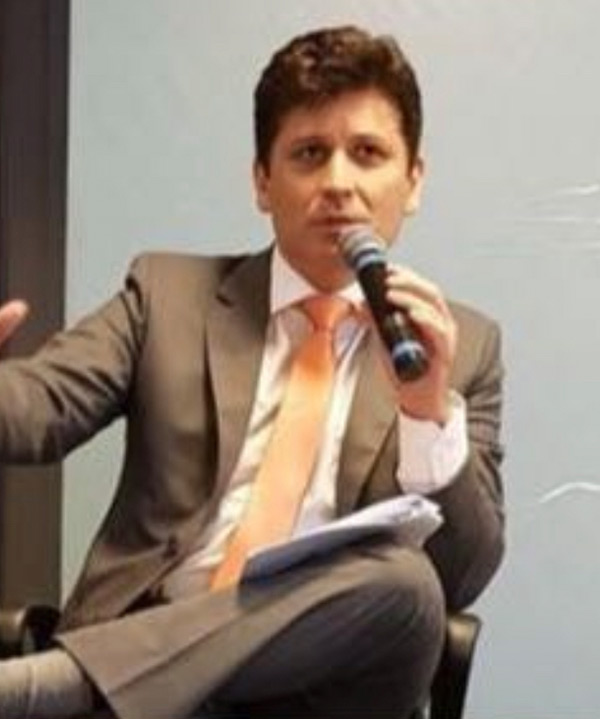
Fábio Schwartz is Master Degree in Economic Law and Development from Candido Mendes University (Universidade Cândido Mendes – UCAM). He is a doctoral researcher at the Fluminense Federal University (Universidade Federal Fluminense – UFF). He is also Professor at Foundation Superior School of Public Defender’s Office of Rio de Janeiro (Fundação Escola Superior da Defensoria Pública do Estado do Rio de Janeiro – FESUDEPERJ), where he teaches Consumer Law. He is also a Public Defender of the State of Rio de Janeiro, Brazil and has experience in the area of Consumer Protection as Coordinator of the Center for Consumer Protection of the Public Defender’s Office of the State of Rio de Janeiro (NUDECOM). He is Former Coordinator of the National Commission of the Public Defenders of Consumer Protection (DPCON). His research resulted in several books and articles on the subject of legal aid and consumer law including: “Direito do Consumidor – Tópicos & Controvérsias” (2013); “Hiperconsumo & Hiperinovação: Combinação que desafia a qualidade da produção. Análise Crítica sobre o aumento dos recall’s” (2016); and “Manual de Direito do Consumidor: Tópicos & Controvérsias” (2018).
La «quatrième vague»: éthique juridique professionnelle et accès des avocats à la justice
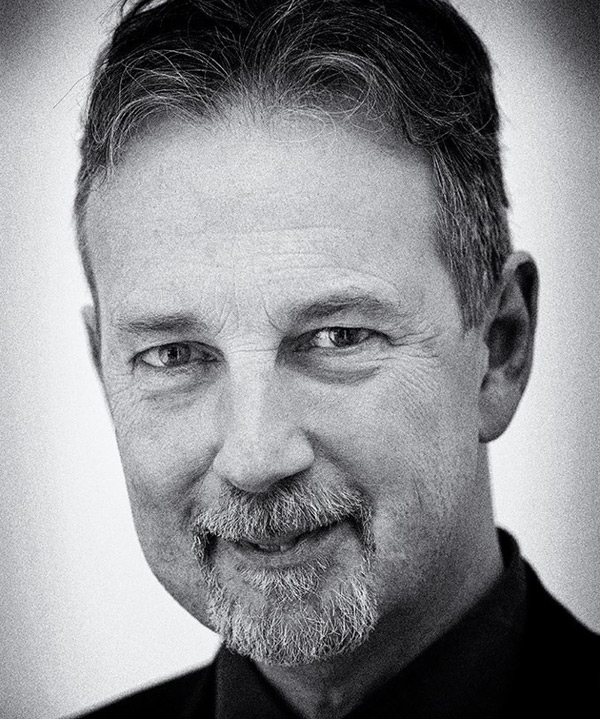
Kim Economides is currently based in Adelaide, South Australia and Cyprus and was Professor of Law and Dean at the former Flinders Law School (2012-18). Previously, Professor of Legal Ethics (2000-09) and Head of Law (1999-2004) at Exeter University. In 2009 Kim was appointed Professor and Inaugural Director of the Legal Issues Centre at the University of Otago in Dunedin, New Zealand (2009-12). Kim studied law in London and was one of the first researchers at the European University Institute in Italy where he worked on the Florence Access to Justice Project (1976-79). Kim co-directed the ESRC-funded Access to Justice in Rural Britain Project (1983-87). He was Founding Secretary (1990-92) and Vice Chair (1992-93) of the Socio-Legal Studies Association (SLSA), and from 1993-95 was seconded as Education Secretary to the Lord Chancellor’s Advisory Committee on Legal Education & Conduct (ACLEC). He was Chair of the Board of Trustees of the Hamlyn Trust (2004-09) and Series Editor, The Hamlyn Lectures (2005-10). He was Founding General Editor of Legal Ethics (1998-2008) and in 2004 helped establish the International Legal Ethics Conference (ILEC) series that meets biennially. He also served as President of the International Association of Legal Ethics (IAOLE) (2014-16).
La «cinquième vague»: processus contemporain d'internationalisation de la protection des droits de l'homme

Bryant Garth is Distinguished Professor and Vice Dean at the University California-Irvine School of Law, where he has been since 2012. His scholarship focuses on the legal profession, the sociology of law, globalization, and legal education. He began his career working with Mauro Cappelletti on the Florence Access-to-Justice Project, which resulted in five published volumes (1977-79). His three major books on law and globalization, co-authored with Yves Dezalay and published by the University of Chicago Press, are “Dealing in Virtue” (1996), “The Internationalization of Palace Wars” (2002) and “Asian Legal Revivals” (2010). The current book, which he is co-authoring again with Yves Dezalay, will be completed this fall and is tentatively entitled “Oligarchies, Families, and Law Schools: Legal Revolution and the Consolidation of Elite Power Around the State”. He has been Dean at Indiana University School of Law-Bloomington and Southwestern Law School and Director of the American Bar Foundation. He served as co-editor of the Journal of Legal Education from 2011-14. He is also on the Executive Coordinating Committee of the “After the J.D.” project, the first longitudinal study of the U.S. legal profession, and the Board of the NALP Foundation; and he chairs the Advisory Committee of the Law School Survey of Student Engagement.

Diogo Esteves is Master in Law and Sociology and doctoral researcher at the Fluminense Federal University’s Program of Sociology and Law (Programa de Pós-Graduação em Sociologia e Direito da Univeridade Federal Fluminense – PPGSD/UFF), where he conduct comparative studies on access to justice and legal aid. He is Professor at Foundation Superior School of Public Defender’s Office of Rio de Janeiro (Fundação Escola Superior da Defensoria Pública do Estado do Rio de Janeiro – FESUDEPERJ), where he teaches brazilian legal aid since 2012. He is also a Public Defender of the State of Rio de Janeiro, Brazil (since 2008) and works representing vulnerable people in civil and criminal cases. His research resulted in several books and articles on the subject of access to justice and legal aid, including: “Access to Justice in Brazil – The Brazilian Legal Aid Model”, co-authored with A. Castro, C. Alves and F. Silva (2017); “Princípios Institucionais da Defensoria Pública”, co-authored with F. Silva (2018); and ブラジルにおける司法アクセス・ブラジルの法律扶助モデル co-authored with T. Ikenaga and C. Alves (Jiyu to Seigi – 2017).

Franklyn Roger Alves Silva received his PhD in Procedural Law from the State University of Rio de Janeiro (Universidade do Estado do Rio de Janeiro – UERJ, Brazil) in cooperation with University of Pavia (Italy). He is Professor at Foundation Superior School of Public Defender’s Office of Rio de Janeiro (Fundação Escola Superior da Defensoria Pública do Estado do Rio de Janeiro – FESUDEPERJ), where he teaches brazilian legal aid since 2012. He is also a Public Defender of the State of Rio de Janeiro, Brazil (since 2008) and works representing vulnerable people in civil and criminal cases. His research resulted in several books and articles on the subject of access to justice, legal aid, criminal and civil procedure, including: “Access to Justice in Brazil – The Brazilian Legal Aid Model”, co-authored with A. Castro, C. Alves and D. Esteves (2017); “Princípios Institucionais da Defensoria Pública”, co-authored with D. Esteves (2018); “O CPC/2015 e a Perspectiva da Defensoria Pública”, coordinator (2019); and “Manual de Processo e Prática Penal”, co-authored with L. Silva (2017).
La «sixième vague»: initiatives prometteuses et nouvelles technologies pour améliorer l'accès à la justice
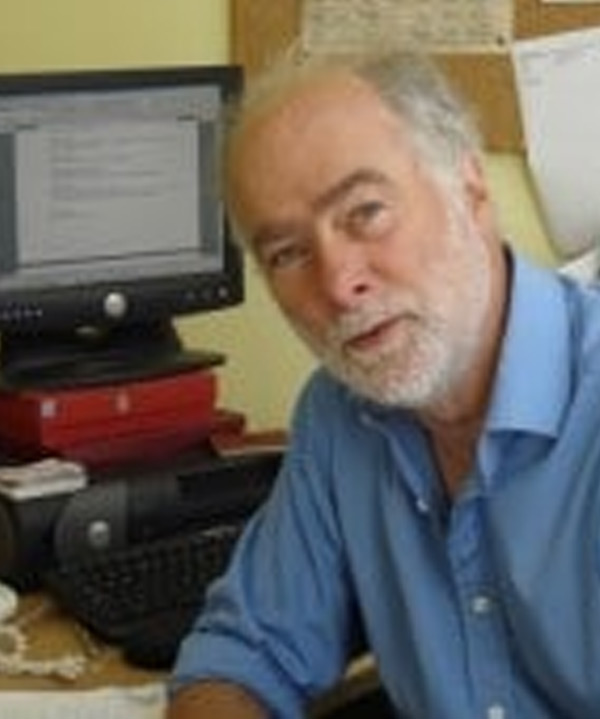
Roger Smith is a researcher, consultant and journalist. He has written widely on matters relating to legal aid and human rights – most recently on the digital delivery of legal services to people on low incomes. He edits the ILAG newsletter and produces a quarterly update on technology and legal aid. He is a solicitor, visiting professor at London South Bank University and writes monthly columns for the Law Society Gazette and New Law Journal. He has been director of the Legal Action Group and JUSTICE. He has been awarded an OBE.
La «septième vague»: les inégalités raciales et de genre dans les systèmes de justice

Global Thematic Coordinator to be confirmed
Approches sociologiques: besoins juridiques (non satisfaits) et sociologie de (in) justice
Besoins juridiques (non satisfaits)
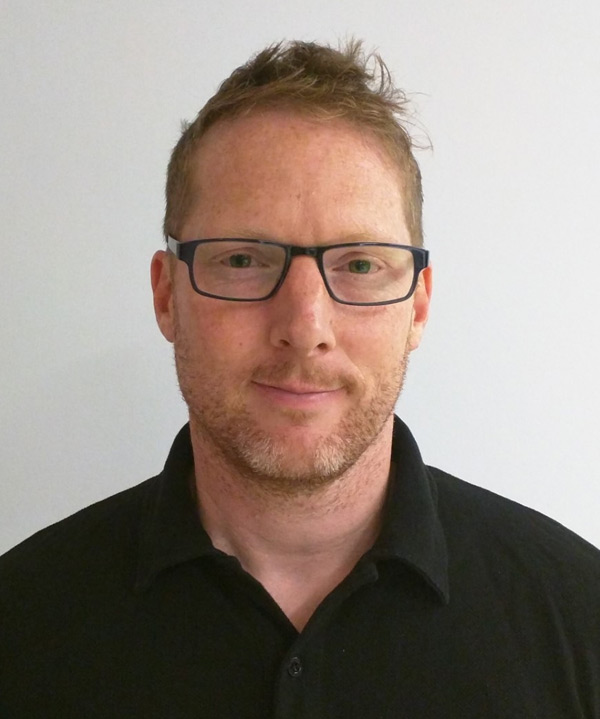
Nigel Balmer is Reader in Law and Social Statistics at UCL. He is also Head of Data, Design and Analysis at PPL and an independent researcher and consultant. He is a leading expert in empirical legal studies, with particular expertise in statistical analysis and empirical research methodology. He is also co-director of the Centre for Empirical Legal Studies at UCL. He works across a broad range of projects (spanning civil and criminal justice) though he has specific interest in the application of social science and modern quantitative methods to explore how the public understand and interact with the law. All of his research is multidisciplinary and collaborative, with a specific focus on methodological innovation and rigour. His work adapts methods from a broad range of disciplines, including psychology, epidemiology, education, health, mathematics and statistics. Nigel’s research interests include exploring the role of law in everyday life, public understanding of the law/legal rights, the experience of and response to legal issues, the interaction between legal and health problems, design of legal services, legal aid and access to justice, empirical research methodology and statistics. He has also conducted research in sports science/sports psychology and will happily tell you how far/high people can jump and give you a (possibly accurate) medal table forecast for the next Olympics.
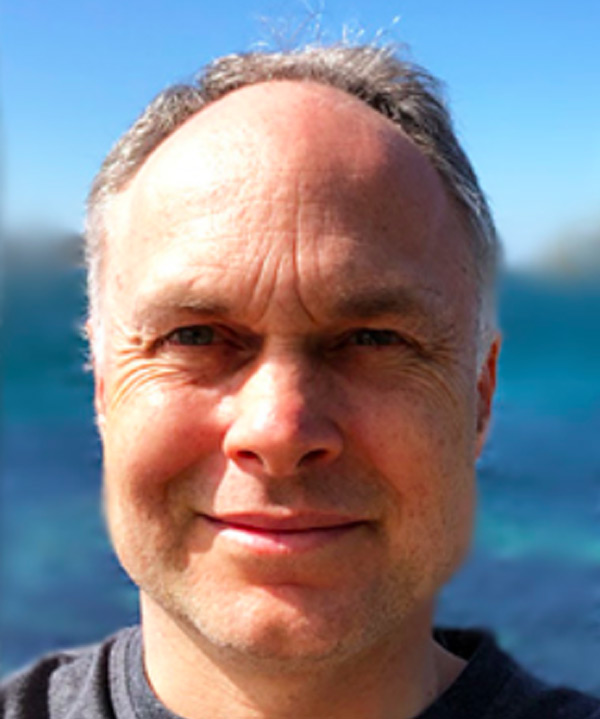
Pascoe Pleasence is Professor of Empirical Legal Studies at University College London. He is a leading expert in empirical legal methodologies, with a particular interest in issues of access to justice. Following his successful stewardship of the English and Welsh Civil and Social Justice Survey, much of his recent work has continued to concern the design, development and analysis of data from ‘legal needs’ surveys (surveys of citizen and business experience of legal problems). Building on his recent report (with the Law and Justice Foundation of New South Wales) framing future research needs – to build upon the findings of legal needs surveys – his current research also has a focus on the better theorizing and means of measuring ‘legal capability’. This has led to the recent development of a small set of standardised legal capability measures – using modern psychometric methods – and continued work to refine and expand these for use in relation to specific legal problems and populations.
Sociologie de (in) justice
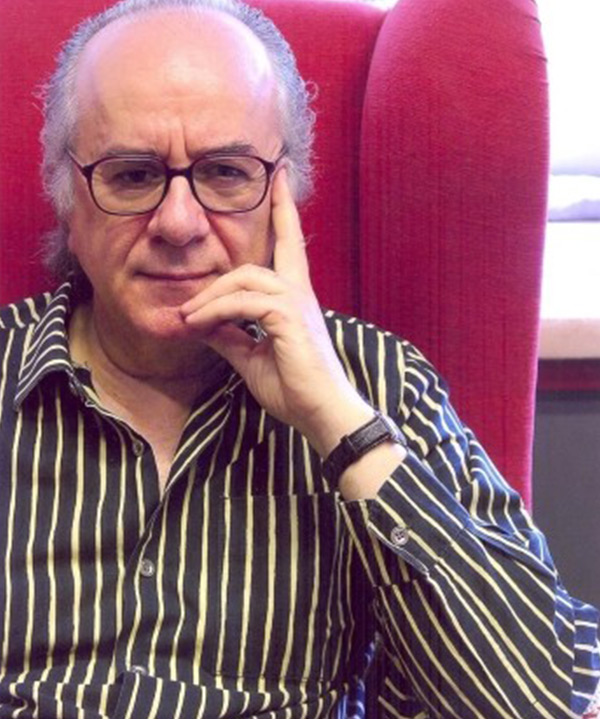
Boaventura de Sousa Santos was born in Coimbra on November 15, 1940. He holds a PhD in sociology of law from Yale University (1973). He is Professor at the Faculty of Economics of the University of Coimbra (Faculdade de Economia da Universidade de Coimbra) and Distinguished Legal Scholar at the University of Wisconsin-Madison. He was also Global Legal Scholar at the University of Warwick and Visiting Professor at Birkbeck College at the University of London. He is Emeritus Director of the Center for Social Studies (Centro de Estudos Sociais – CES) at the University of Coimbra and Scientific Coordinator of the Permanent Observatory of Portuguese Justice (Observatório Permanente da Justiça Portuguesa). From 2011 to 2016, he directed the research project “ALICE – Weird Mirrors, Unforeseen Lessons: Defining for Europe a new way of sharing experiences around the world” (ALICE – Espelhos estranhos, lições imprevistas: definindo para a Europa um novo modo de partilhar as experiências o mundo), a project funded by the European Research Council (ERC), one of the most prestigious and competitive international funding for scientific research in the European Continent. He has written and published extensively in the fields of sociology of law, political sociology, epistemology, postcolonial studies, and on the themes of social movements, globalization, participatory democracy, state reform, human rights, with fieldwork in Portugal, Brazil, Colombia, Mozambique, Angola, Cape Verde, Bolivia and Ecuador. His works are translated into Spanish, English, Italian, French, German, Chinese, Romanian, Danish and Polish.

Conceição Gomes is a researcher at the Center for Social Studies (Centro de Estudos Sociais – CES) at the University of Coimbra, Executive Coordinator of the Permanent Observatory of Portuguese Justice and the Legal and Judicial Training Unit (Observatório Permanente da Justiça Portuguesa e da Unidade de Formação Jurídica e Judiciária). She has coordinated or participated in the coordination of studies in the fields of policy and law reform, justice and judicial cooperation. In addition to Portugal, she has developed research projects in Macao, Mozambique, Angola and the European Union, such as studies on the judicial map in Portugal, courts in Angola, the European arrest warrant and trafficking in women for sexual exploitation. She has also participated in several Justice Reform Working Groups, and has taught in advanced training programs. Currently, her research interest focuses on the sociology of law and the sociology of the administration of justice, the state and the judiciary, and justice reforms.

João Paulo Dias is a sociologist, Master in Sociology of Law from the Faculty of Economics of the University of Coimbra (Faculdade de Economia da Universidade de Coimbra) and Doctor of Sociology of Law at the same institution. He is currently Executive Director and Researcher at the Center for Social Studies at the University of Coimbra. Author of several articles and books, including: “Por caminhos da(s) reforma(s) da justiça”, co-authored with com João Pedroso and Catarina Trincão (2003); “O mundo dos magistrados: a evolução da organização e do auto-governo judiciário” (2004); “O papel do Ministério Público no poder judicial: estudo comparado dos países latino-americanos”, coordinated with Rodrigo Ghiringhelli de Azevedo (2008); and “O Ministério Público no acesso ao direito e à justiça” (2013), among others. His fields of interest include access to law and justice, the role of the prosecutor and, in particular, the sociological characterization of the judiciary (judges and prosecutors) from a comparative perspective.
Approches anthropologiques et postcoloniales: dimensions culturelles du problème de l'accès et apprentissage des peuples des Premières Nations
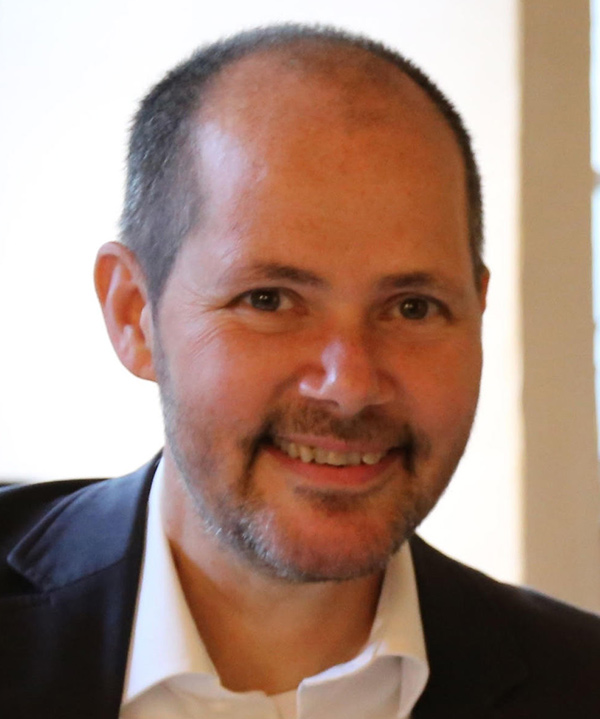
Martin Ramstedt. Martin Ramstedt obtained a Dr. phil. (social and cultural anthropology, social psychology, European ethnology) from Ludwig Maximilians University in Munich and a Dr. phil. habil. (social and cultural anthropology) from Martin Luther University in Halle/Saale.
Over the past twenty years, Dr. phil. habil. Martin Ramstedt has worked as (senior) researcher at various international research institutions in the Netherlands and Germany, inter alia at the International Institute for Asian Studies in Leiden, the Royal Netherlands Institute of Southeast Asian and Caribbean Studies (KITLV), the Max Planck Institute (MPI) for Social Anthropology in Halle and the Käte Hamburger Centre of Advanced Studies “Law as Culture” in Bonn. Ramstedt has taught anthropology and sociology of law at various European universities, for instance as Visiting Professor at the International Institute for the Sociology of Law (IISL) in Oñati, Spain, as Guest Professor the School of Oriental and African Studies (SOAS) in London, and as Private Reader as well as Deputy Professor at the Martin Luther University in Halle. For many years, his research focused on the accommodation of Islamic and customary law norms and institutions in Indonesian state law, the cultural translation of indigenous rights into local contexts, and transnational religious networks in Asia, on which he has published extensively.
Ramstedt has recently been nominated and appointed as the new Scientific Director of the IISL in Oñati, starting in mid-2020. In the context of this appointment, he has shifted his research focus to an inquiry into notions of ‘law’ and ‘justice’ in restorative processes in the Basque country.
Ramstedt also works as an independent mediator, and is one of two chief editors of the book series “Religion and Society in Asia” at Amsterdam University Press.

Kim Economides is currently based in Adelaide, South Australia and Cyprus and was Professor of Law and Dean at the former Flinders Law School (2012-18). Previously, Professor of Legal Ethics (2000-09) and Head of Law (1999-2004) at Exeter University. In 2009 Kim was appointed Professor and Inaugural Director of the Legal Issues Centre at the University of Otago in Dunedin, New Zealand (2009-12). Kim studied law in London and was one of the first researchers at the European University Institute in Italy where he worked on the Florence Access to Justice Project (1976-79). Kim co-directed the ESRC-funded Access to Justice in Rural Britain Project (1983-87). He was Founding Secretary (1990-92) and Vice Chair (1992-93) of the Socio-Legal Studies Association (SLSA), and from 1993-95 was seconded as Education Secretary to the Lord Chancellor’s Advisory Committee on Legal Education & Conduct (ACLEC). He was Chair of the Board of Trustees of the Hamlyn Trust (2004-09) and Series Editor, The Hamlyn Lectures (2005-10). He was Founding General Editor of Legal Ethics (1998-2008) and in 2004 helped establish the International Legal Ethics Conference (ILEC) series that meets biennially. He also served as President of the International Association of Legal Ethics (IAOLE) (2014-16).
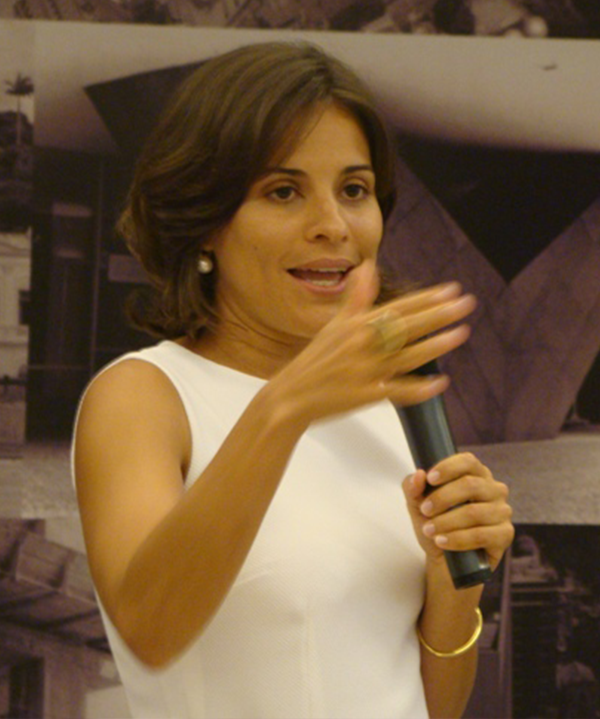
Leslie Shérida Ferraz holds a PhD degree from University of São Paulo (Universidade de São Paulo – USP), Brazil and a Post-Doc from Flinders University, Australia. She has been a visiting researcher at Fordham University (NYC, EUA) and at Università degli Studi di Firenze (Italy). Since 2003, she’s been developing empirical legal research about the improvement of access to Justice, with institutions such as CEBEPEJ, Brazilian Ministry of Justice, IPEA and United Nations.
Éducation Juridique

Avrom Sherr was Deputy Dean of the School of Advanced Legal Studies from 2011 to 2012. From 1995 he was the founding Woolf Professor of Legal Education, a research chair. He taught at the University of Warwick for 16 years, and was the first Alsop Wilkinson Professor of Law at the University of Liverpool. He qualified as a solicitor in 1974 and worked in commercial litigation at Coward Chance till 1980. From 1998 to 2012 he was also Director of Training at Macfarlanes. Avrom Sherr’s main research interests have been the provision of legal services, the development of legal education, the legal profession and ethics in professional work. He has also written in the areas of freedom of protest, discrimination relating to AIDS/HIV, issues of welfare rights provision with health care and carried out two projects on On-line Dispute Resolution. He is the architect of a system of assessment of legal competence known as Independence Peer Review. Since 2000 this has been used as the system for assessment of the quality of Legal Aid work in the UK, ensuring the quality of legal services received by the public, and he currently leads the operation of this work for England and Wales. He is the founding editor of the International Journal of the Legal Profession, was the project leader producing the seminal report “Willing Blindness” on regulation of the legal profession, and has coordinated a number of trans-European projects on legal ethics, money laundering, legal and accountancy practitioner defaults and discrimination. He was a member of the Legal Service Commission Quality Assurance Working Group and of the Lord Chancellor’s Advisory Committee on Legal Education and Conduct. He was Chair of the Advisory Board & Strategy Committee of the UK Centre for Legal Education, Chair of the Advisory Committee of the Office of the Independent Adjudicator for Higher Education and Chair of the Hamlyn Trust. He is currently Chair of the Advice Quality Standards Project Committee. Recent work includes the Legal Education and Training Review funded by the Solicitors Regulation Authority, the Bar Standards Board and the Chartered Institute of Legal Executives, advising the Hong Kong Law Society on the future of qualification systems, advising the Legal Aid Board of Georgia and work with National Legal Aid Centre of the Ministry of Justice in China. His consultancy and research on law and policy has included leading and advising a Council of Europe Meeting on Legal Aid legislation and implementation for Armenia, Azerbaijan, Georgia, Moldova and the Ukraine in December of 2015, and he has worked in New Zealand, South Korea, Chile, South Africa, Bulgaria, Turkey, Japan and Russia on Legal Aid policy and legislation.
Efforts mondiaux en faveur de l'accès à la justice

Paul Prettitore is Senior Land Administration Specialist of the World Bank Group.
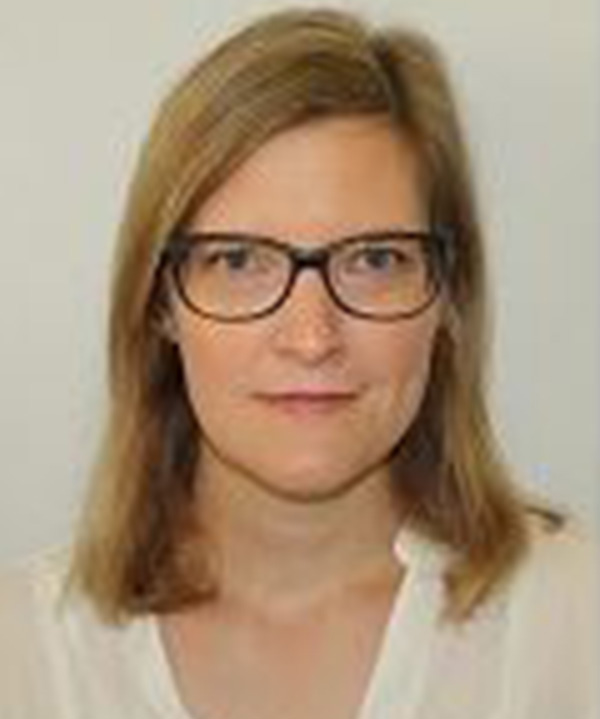
Anika Holterhof, LL.M. is a qualified lawyer from Germany, specialised in international and domestic criminal law and human rights. She joined the United Nations Office on Drugs and Crime in 2012 with the Organized Crime and Illicit Trafficking Branch, working on cybercrime and international cooperation, and currently holds the position of Crime Prevention and Criminal Justice Officer in the UNODC Justice Section/Division for Operations, where she is focusing on access to justice and legal aid.
Prior to joining UNODC, Anika performed assignments with the International Criminal Tribunal for the former Yugoslavia (ICTY), Defence Counsel before international and domestic courts, the Organized Crime Department of the Office of Public Prosecution in Bonn, and the Federal Foreign Office of Germany. She holds a law degree from the University of Bonn (GER), and an LL.M. degree from the University of Amsterdam (NL).
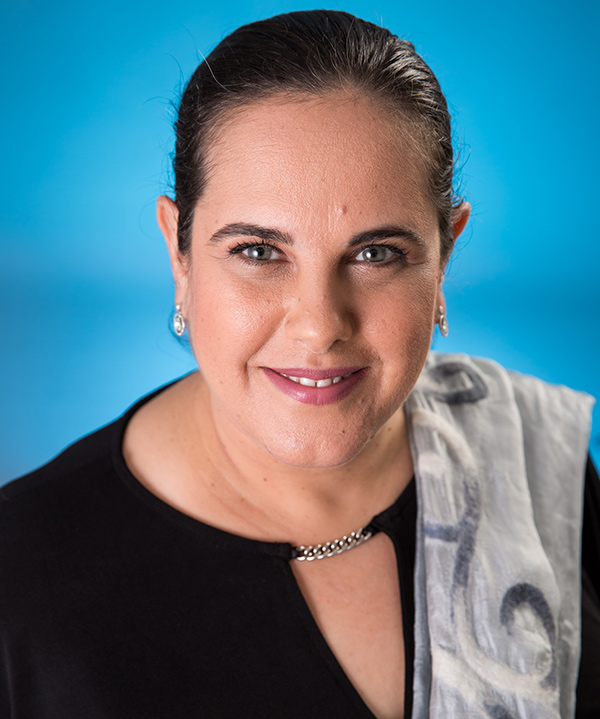
Miri Sharon has over 18 years of experience in Public International Law (International Criminal law, Human Rights Law and International Humanitarian Law), working for the United Nations, Academic institutes and government agencies. In particular she worked on implementation of standards and norms in crime prevention and criminal justice, organized crime and human rights in the criminal justice system. She provided legal advice and developed tools such as Model Laws, Handbooks and Training programmes; supervised junior staff as well as senior consultants; led project development and implementation; and organized international conferences and expert meetings, as well as national workshops. Since 2009 her work focused on Access to Justice and Legal Aid, supporting the development and implementation of the UN Principles and Guidelines on Access to Legal Aid in Criminal Justice Systems. She was involved in drafting and presenting reports to the UN human rights bodies (2001-2006) and in mainstreaming human rights within the United Nations Office on Drugs and Crime (2009-2015). Since 2016 Ms. Sharon works as an independent expert and have provided consultancy services to UN Women and UNODC. This included contribution to a publication on access to justice for women and the co-authoring of a publication on quality in legal aid services. She also conducted assessments and was involved in drafting strategic documents and project evaluation.

